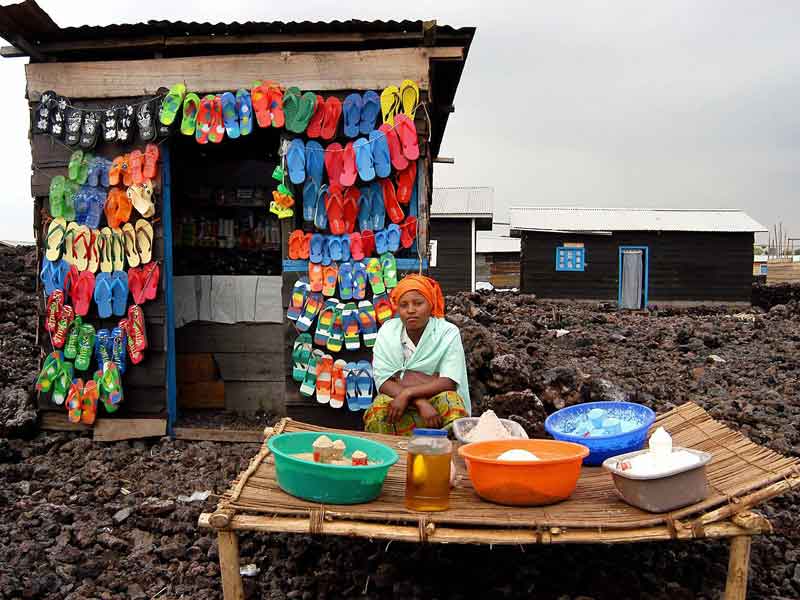
Top 5
The informal economies of developing nations are often the unsung heroes of job and wealth creation, creating millions of jobs in Africa. In some countries, they create more jobs than the formal sector: for example, in Angola up to 60 percent of jobs are part of the informal sector.
The region’s immature financial services sector makes it particularly difficult for informal businesses and entrepreneurs to build a credit history and borrow from banks. Those that can suffer from high interest rates.
The reality is that these businesses contribute billions to the national economy through salaries paid and goods bought. In Africa, the sector represents at least 41 percent of continental GDP. This figure reflects the even greater potential that the informal sector would have if it were to become formalised.
Migrating to the formal system
Part of the solution lies in facilitating policies to help legalise informal businesses and grant access to the benefits that formal businesses enjoy. The Angolan Government has already started on this journey. Policy changes include the PROAPEN programme, which aims to develop and establish small-scale businesses by granting credit facilities to micro-entrepreneurs. Measures such as these can go a long way in developing the informal sector.
Fiscal strategies are an important tool that should be embraced. Extending new lines of affordable credit for small businesses, addressing constraints related to registering property and easing red tape for construction permits all make it easier for small businesses to get started.
Encouraging informal businesses to sign up to a social security scheme also acts as an incentive for them to migrate to the formal system. In Angola, the government has created a new way for small growing businesses to gain access to funding through an innovative state-backed fund.
Extending new lines of affordable credit for small businesses, addressing constraints related to registering property and easing red tape for construction permits all make it easier for small businesses to get started
Fundo Activo de Capital de Risco Angolano (FACRA) helps commercially viable, promising businesses to meet with a range of foreign investors who are themselves looking for opportunities to invest in the country. FACRA also goes above and beyond the role of a traditional venture capital by supporting skills development. For investors, it offers an orientation on regulatory questions about the national entrepreneurial culture.
The fund is an ideal partner to foreign companies and investors, acting as a gateway to the best opportunities and a potential lifeline to informal businesses keen to make the transition to the formal sector.
Creating investment opportunities
One significant benefit of encouraging businesses to make the transition is that the number of investment opportunities in the country rises, making the market increasingly attractive to investors. Furthermore, the millions of people employed in the sector will gain greater protection under the law and have their income formalised. This will allow them to access previously unavailable financial services, helping to reduce the number of unbanked citizens.
Governments should also be cognisant of the fact that individuals running businesses in the informal sector are often stigmatised – national governments must therefore tread a careful path in encouraging informal business owners to come forward.
With millions of people working in the sector, there are thousands of highly talented entrepreneurs and innovators – this is especially important because national governments and ordinary people have much to gain by unleashing the potential of local entrepreneurs and big thinkers. It is time for them to be embraced by policymakers and the investor community so that everybody can benefit.


